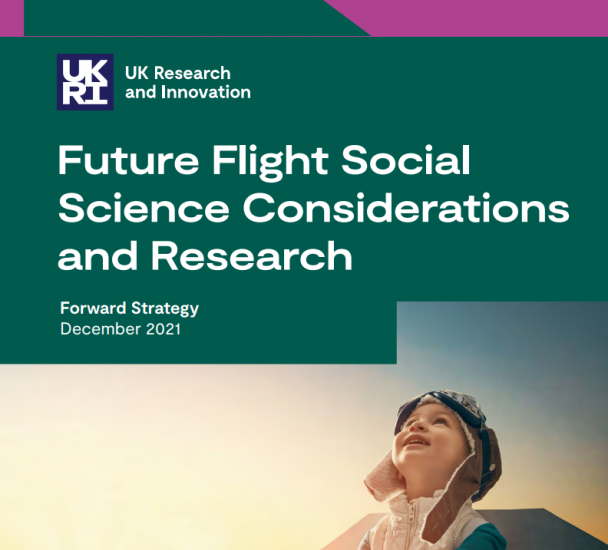UK Research and Innovation (UKRI) agency has released a new report identifying the key research priorities required to deliver the aviation system of the future. Future Flight Social Science Considerations and Research assesses public and social readiness and the implications of regulatory frameworks, encouraging greater engagement across academia, industry and the public sector and represents a key milestone in the vision for aviation in 2030. The report is compiled by Future Flight Challenge, the GBP125 million investment designed to spark the third revolution in aviation through new classes of electric/hydrogen and autonomous vehicles.
The report represents the latest milestone in UKRI’s Future Flight Vision & Roadmap, a 2021 report showcasing how the future aviation system will operate by 2030 and how the industry can support the UK achieve this vision.
The forward strategy paper provides an initial assessment of the research landscape to identify five broad and interconnected research themes that the Future Flight Challenge believes are priorities for social and economic research attention.
UKRI identifies five key priorities for UK Future Flight in the new report:
- Understanding the innovation ecosystem
- Public and social readiness
- Impacts on rural and urban environments
- Communities and social impacts
- Trustworthiness, regulatory frameworks and implications.
With the UK’s world-leading capabilities in aerospace and aviation and its strengths in the production of key enabling technologies such as AI, batteries, robotics and digitalisation, the successful adoption of future flight technologies will hinge on public perceptions of trustworthiness and their potential positive social benefits. Future Flight Social Science Considerations and Research is a call to action to stakeholders from academia, industry, and the public sector to collaborate and enable a more comprehensive understanding of broader social needs and values to help foster innovation, according to the report.
Professor Fern Elsdon-Baker, Director at Research Institute for STEMM in Culture and Society (ISTEMMiCS) at the University of Birmingham said: “The UK already has world-leading capabilities in aerospace and innovation which will enable us to build, use and export new forms of aviation with the potential to provide a host of social benefits, such as increasing mobility and improving connectivity; however, having the capacity to build these technologies is only part of the journey. The success of these transformative innovations in how we transport people and goods or provide services, hinges entirely on societal readiness and the public perceptions of future flight technologies. The Future Flight Social Science Considerations and Research paper is a call to action to both industry and academia to collaborate to better understand these perceptions and create an inclusive aviation system that works for everybody.”
Future Flight Social Science Considerations and Research is available for download here: https://www.ukri.org/publications/future-flight-social-science-considerations-and-research/
For more information visit:




